Georgia Tech has produced some of the most distinguished military officers in our nation’s history. We proudly count generals, admirals, and Medal of Honor recipients among our alumni. Here are some of their stories.
Alumni
Blurb / Gallery Set
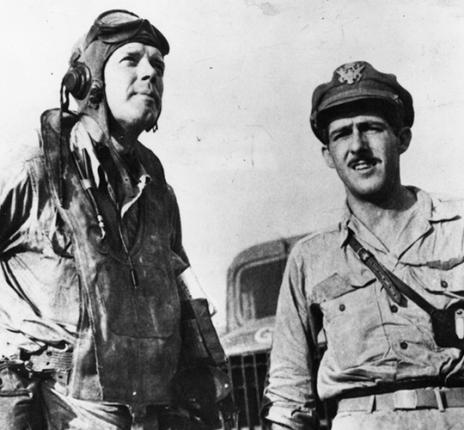
Thomas McGuire, Army (on left)
Thomas McGuire came to Georgia Tech to study aeronautical engineering. The brewing specter of war in the early 1940s changed those plans. McGuire was in his third year, a cadet sergeant major in Georgia Tech’s Army ROTC program, when he left to attend military pilot training. After graduating from flight school, he flew patrols over the Aleutian Islands before the Army transferred him to the South Pacific. He became an ace, downing five enemy aircraft in his first two engagements. He went on to shoot down 33 more Japanese aircraft over 16 months and ranked as the second-leading U.S. ace of the war. He died shortly before he was to return to the United States when his plane crashed while trying to protect one of the flyers under his command during combat. For “gallant initiative, deep and unselfish concern for the safety of others, and heroic determination to destroy the enemy at all costs,” McGuire was awarded the Medal of Honor after his death. He is one of at least four former Georgia Tech students to have received that honor.
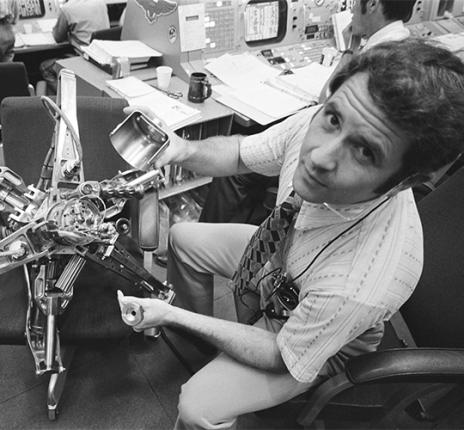
Richard H. Truly, Navy
Richard Truly (AE 1959) graduated from Georgia Tech at just the right time to have a front-row seat to history. The Mississippi native attended Tech on a Navy ROTC scholarship that launched him into a career as a naval aviator and, later, a test pilot. In 1969, NASA tapped Truly to become an astronaut, but it would be years before he would fly in space. After working on the Skylab and Apollo-Soyuz programs, he served as the pilot of the backup crew for the first space shuttle launch. He finally got his first chance to fly in space aboard Columbia in 1981. He returned to space two years later on Challenger before leaving NASA to head the new Naval Space Command. After the Challenger exploded in flight in 1986, NASA asked Truly to oversee the technically and politically difficult effort to decide when, and how, to resume manned space flights. In 1989, President George H.W. Bush named him NASA Administrator, a post he held until 1992. That year, he returned to Georgia Tech to serve as vice president and director of the Georgia Tech Research Institute. He retired from the Navy as a Vice Admiral in 1989.
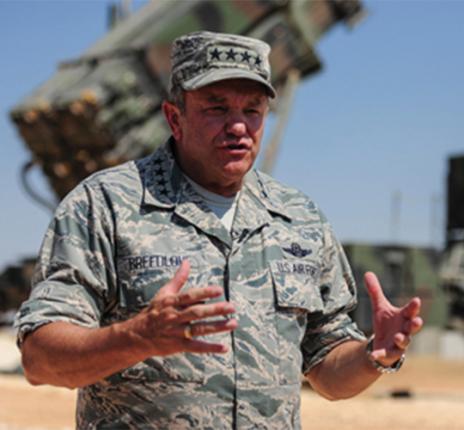
Philip Breedlove, Air Force
Philip Breedlove (CE 1977) retired from the U.S. Air Force as a general in 2016. He started out as a combat pilot flying F-16 fighter jets, and eventually logged more than 3,500 flight hours. “All I ever wanted to do was fly fighter aircraft,” he told Georgia Tech’s Alumni Magazine. “I wanted to be the most effective, efficient, weapon in my nation’s Air Force.” He was destined for a stage much larger than the cockpit of a jet, however. He went on to serve as a combat commander and staff officer during a more-than 30-year career that included stints as the commander of U.S. Air Forces in Africa and the Vice Chief of Staff of the Air Force. His career culminated in appointments as the U.S. European Command Commander, and the Supreme Allied Commander Europe, NATO’s top military officer. While at NATO, he earned a reputation as a frank speaker. “My career started here in a Cold War trying to keep the peace,” he said at the time of his retirement. “I think my career is now ending here trying to prevent a Cold War and continue to keep the peace.” After leaving the military, he joined the Sam Nunn School of International Affairs at Georgia Tech’s Ivan Allen College of Liberal Arts, where he continues to speak on the need to address the threat posed by a resurgent Russia, among other global issues. He is a distinguished professor and senior fellow at the Nunn School’s Center for European and Transatlantic Studies.
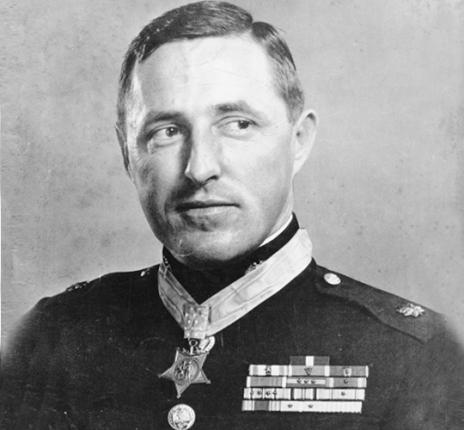
Raymond G. Davis, Marine Corps
Raymond Davis (Chemical Engineering, 1939) attended Georgia Tech as an Army ROTC student. when he graduated, instead of going on active duty with the Army, he opted to join the U.S. Marine Corps. Davis, who died in 2003, fought at Guadalcanal, New Guinea, and Peleliu, where he earned the Navy Cross and Purple Heart, the first in a string of awards that would make him one of the most highly decorated officers in the nation’s history. His other awards include two Silver Stars and the Medal of Honor, which he received for heroism in leading the rescue of besieged Marines at the Chosin Reservoir during the Korean War. In war and in peace, as an active duty Marine and as a private citizen, General Raymond Davis’ outstanding courage, unwavering devotion to duty, and sound judgment have represented the highest tradition of military service and citizenship,” Georgia Senator Zell Miller told the Senate at the time of Davis’ passing. An endowment fund in Davis’ name is dedicated to helping provide a financial foundation for international security studies at Georgia Tech and the Center for International Strategy, Technology and Policy of the Sam Nunn School for International Affairs.
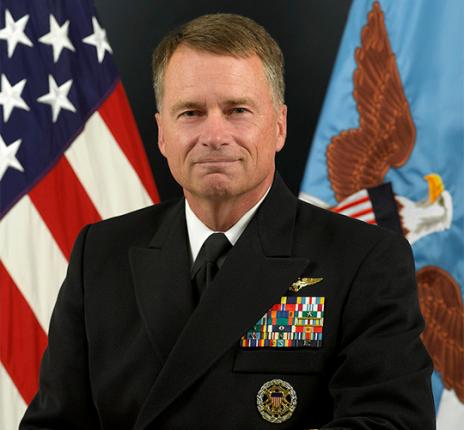
James A. Winnefeld Jr., Navy
James A. Winnifeld Jr. (Aerospace Engineering, 1978) retired from the Navy in 2015 as an admiral after a 37-year career that saw him rise to the number two military post in the nation: vice chairman of the Joint Chiefs of Staff. He flew fighter jets as a young officer, and later commanded the U.S.S. Enterprise in the U.S.S. Theodore Roosevelt Carrier Strike Group. He also commanded the U.S. Sixth Fleet, the U.S. Northern Command, and the North American Aerospace Defense Command. He now serves as distinguished professor in the Sam Nunn School of International Affairs at Georgia Tech, where he also is a member of the Engineering Hall of Fame. He also is a senior non-resident fellow at the Belfer Center for Science and International Affairs, John F. Kennedy School of Government at Harvard University.
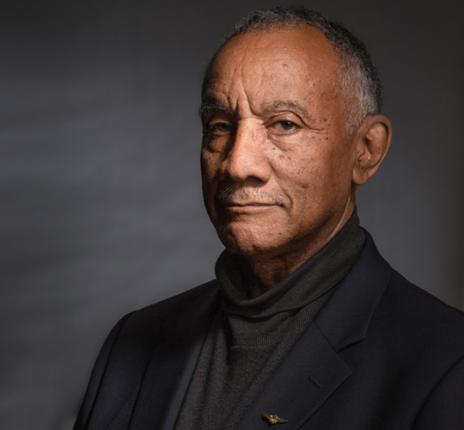
Fred Espy, Navy
Fred Espy (AM, 1966) came of age during the Vietnam War. After graduating from Georgia Tech — the Institute’s second African-American graduate — Espy served as a Navy F-4 fighter pilot and intelligence officer. He later helped found and lead Reserve Officers’Training Corps (ROTC) programs at Southwest DeKalb High School and Morehouse College, which he has said was some of the most meaningful work of his life. “Later on, through my involvement with recruiting and ROTC programs, I was able to help many young people find their way. That means so much more to me than dropping bombs on a bridge.”
